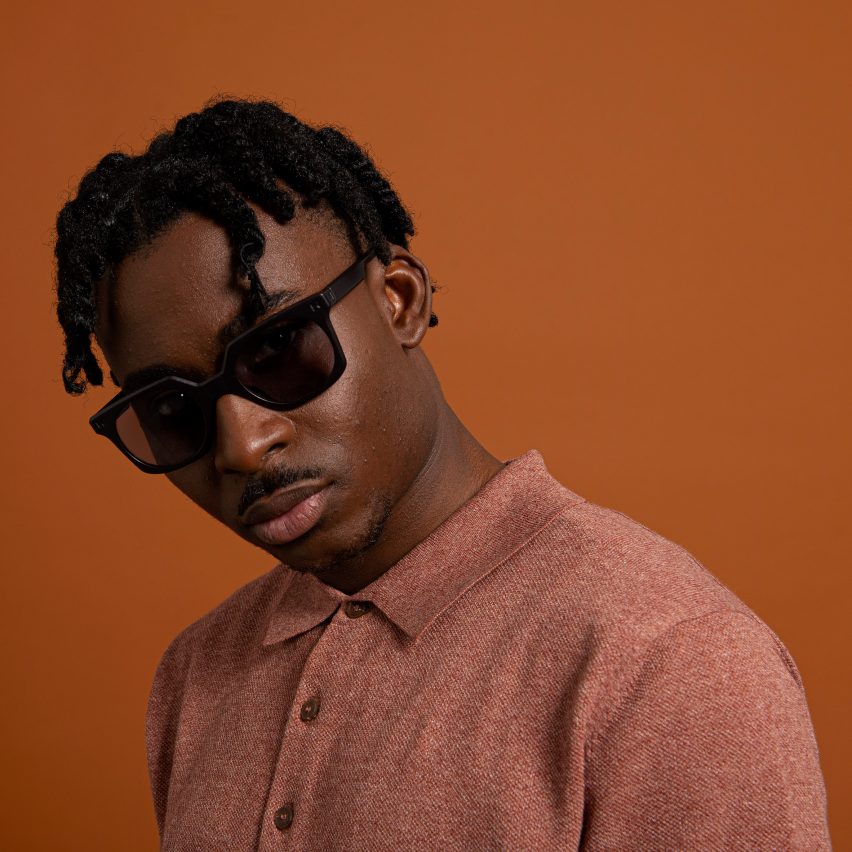
Berlin-based eyewear brand Reframd has designed a range of 3D-printed sunglasses specifically for people with low and wide noses.
Reframd, which describes itself as an "Afropolitan" eyewear brand, set out to "challenge the status quo" by designing sunglasses specifically for black people's nose profiles.
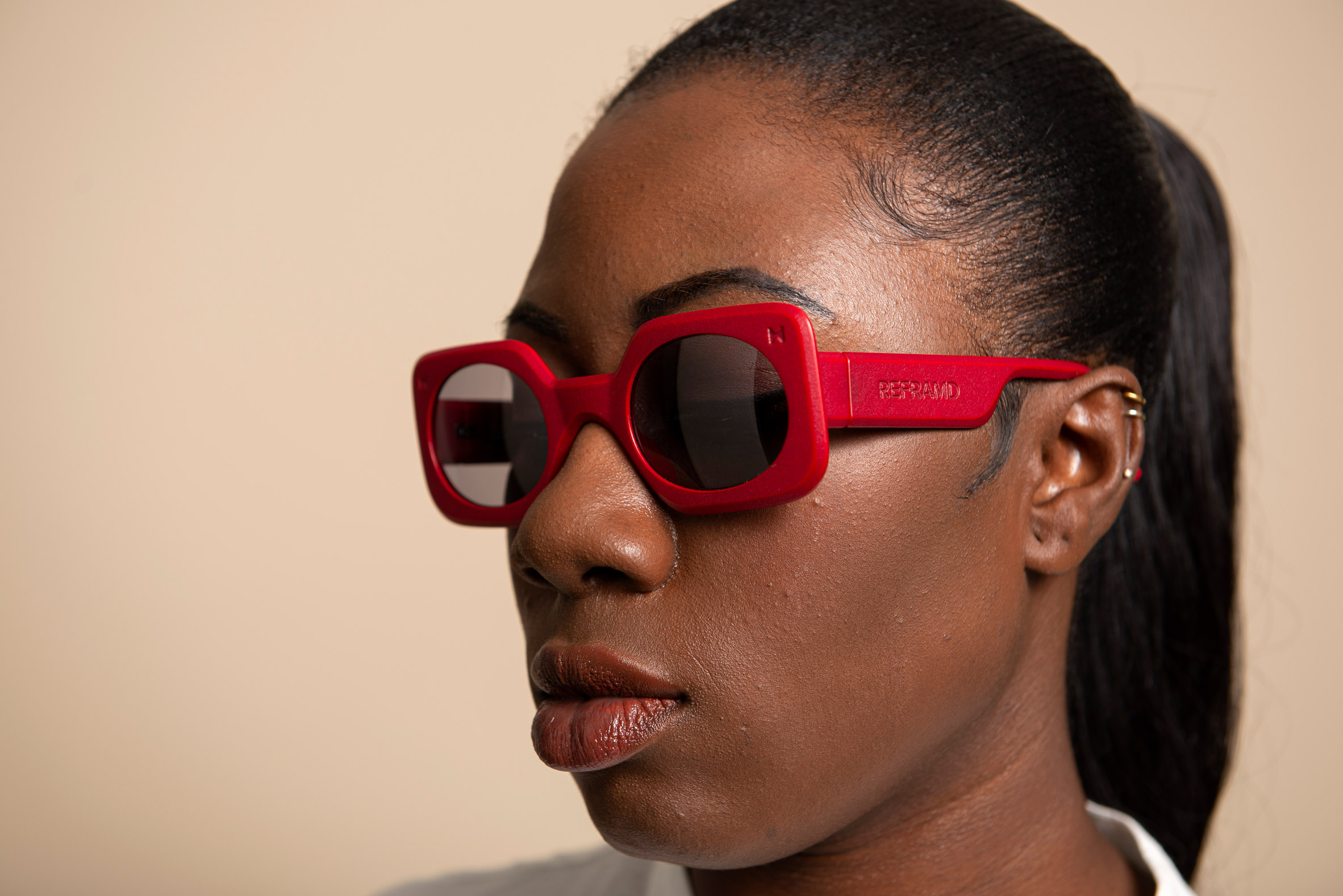
"The basic concept behind Reframd is that good design is empowering and reflects the rich diversity of society," said Shariff Vreugd, co-founder of Reframd.
"Our idea started with the aim to design eyewear products for people with low and wide nose profiles — nose profiles found on many Black people — concerning our sunglasses," he told Dezeen.
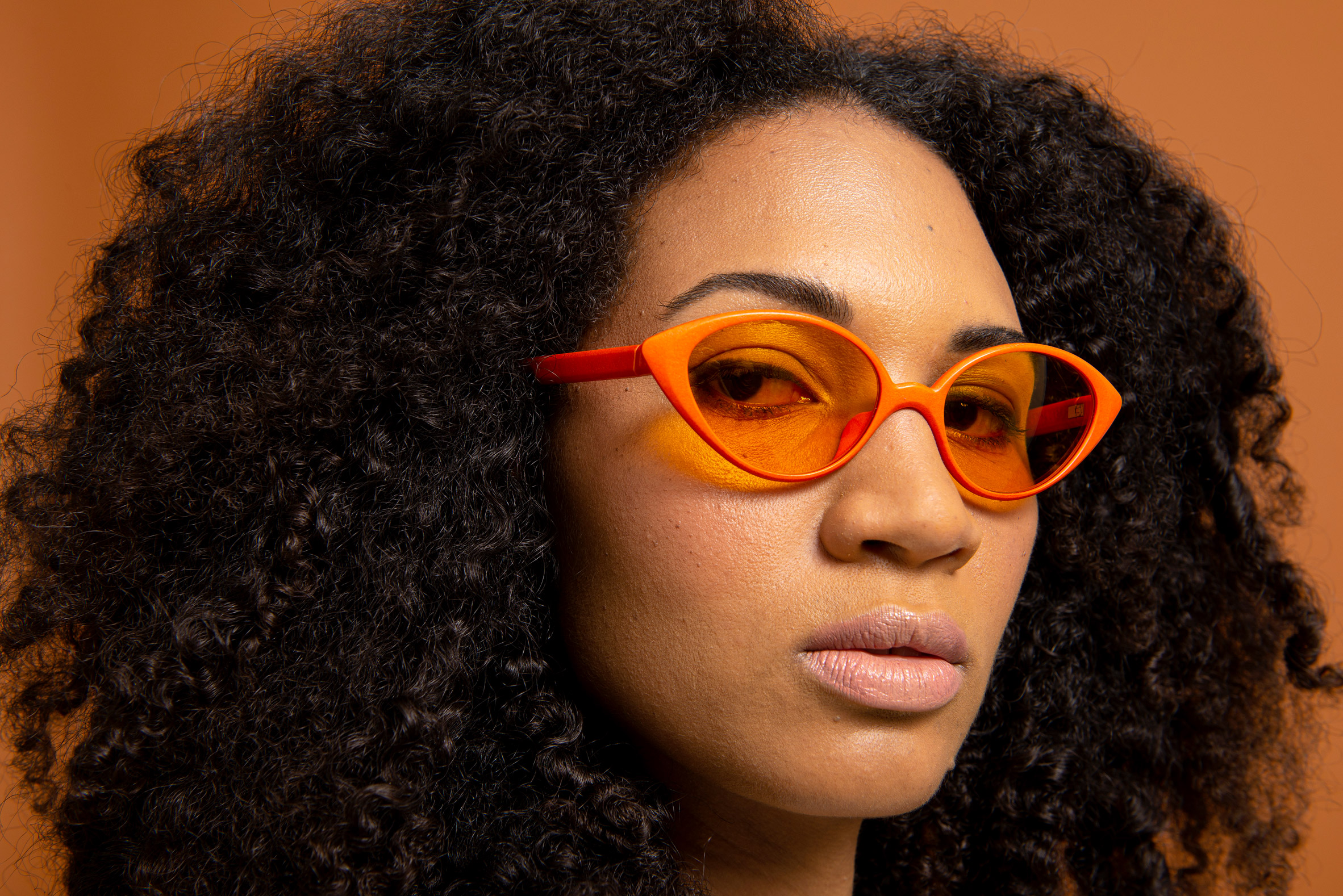
Three main factors make the unisex sunglasses more comfortable for wearers. Firstly, the bridge has been lowered and widened so that it fits more snugly around broader noses.
Secondly, the nose pads are a different shape than ones used in other sunglasses so that they fit "shallow" or wide-angled noses – noses that slope less steeply.
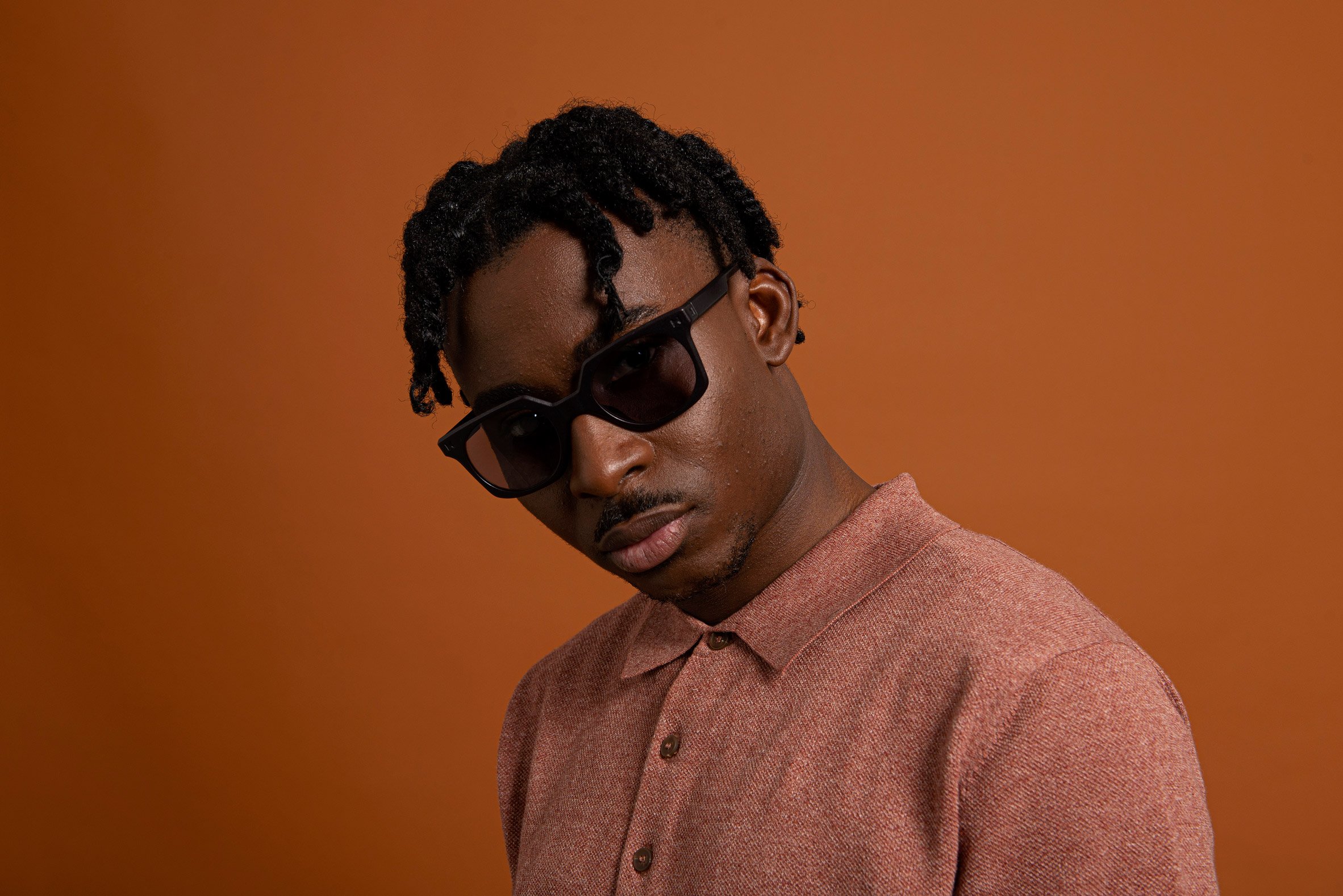
And finally, the pantoscopic tilt — a measurement taken from the bottom of the glasses to the top of the frame — has also been adjusted in Reframd's sunglasses.
"Regular frames tend to rest on cheekbones on lower nose profiles. To avoid this, we reduce the frames' pantoscopic tilt," Shariff explained.

Wearers can scan their face on Reframd's website using their self camera before virtually trying on the glasses.
An algorithm analyses the face so that the frames can be customised accordingly. As a result, Reframd creates sunglasses that "genuinely fit everyone".
"We felt that if we could get fitting correct with our initial Black customers, we would extend our designs to people with different nose profiles. So we set out to optimise our frame-generating algorithm to accept variable data for any nose profiles," said Shariff.
Although originally designed by black people for black people, the founders wanted to create more inclusive products. The glasses, which are being launched via Kickstarter and will be available in October, come in four designs called Liptitika, Moni, Planga, Umoyo.
They will each be available in and four colours.
"Quite quickly, it became clear that other overlooked groups would benefit from our products as well, such as people from east Asia and people with Down Syndrome. And so, we set out to create eyewear products designed to fit people and not the other way around," Shariff recalls.
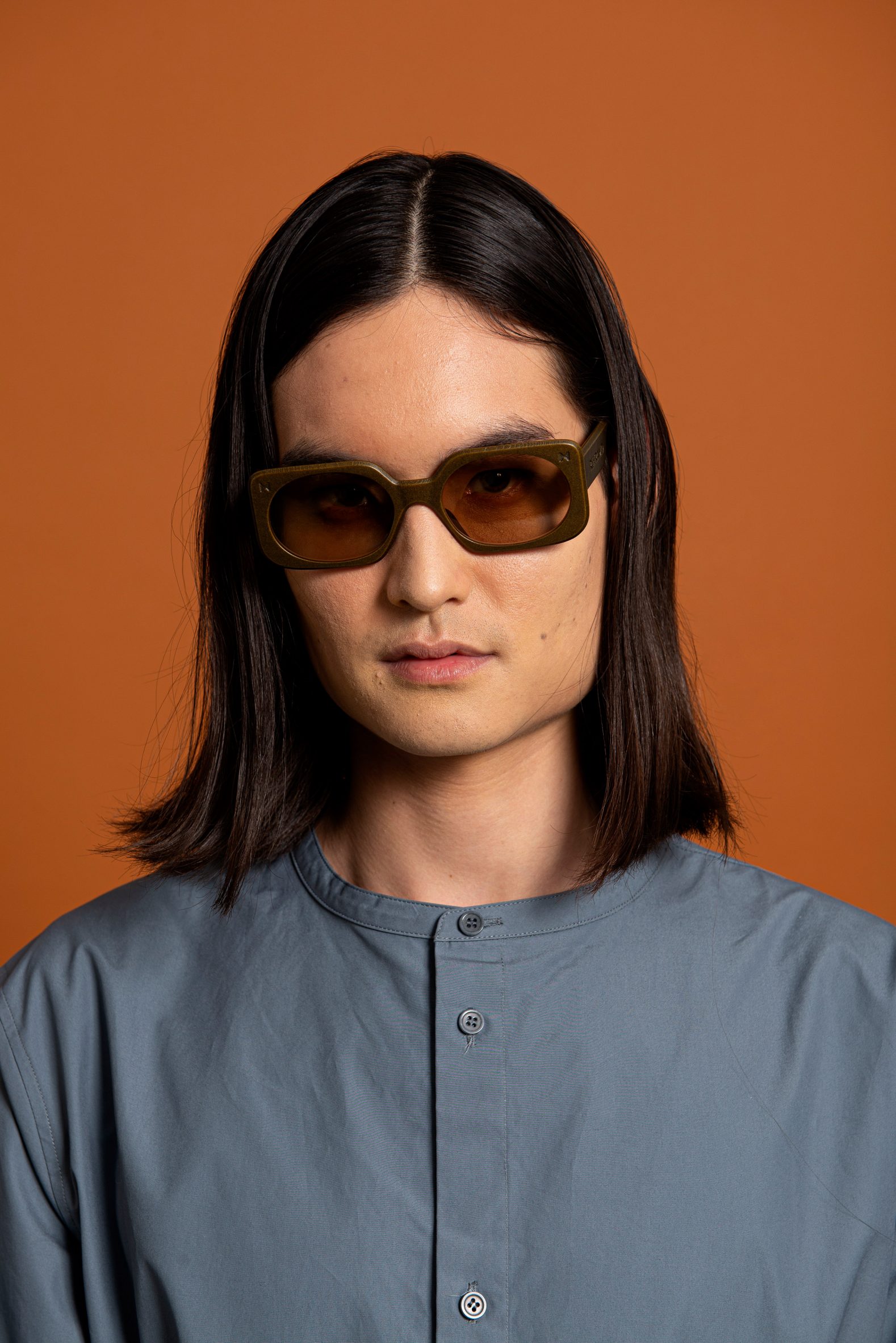
"More and more overlooked communities want to see themselves represented and are economically willing and able to support brands that represent them. People want to know what brands stand for and who is behind those brands. Most importantly, the communities are driving the changes they want to see in the world," he added.
Reframd isn't the only brand using 3D printing to create sunglasses. Architect Kengo Kuma recently launched a capsule collection of 3D-printed sunglasses.
In 2019, Austrian eyewear manufacturer Rolf released 3D-printed sunglasses from castor beans.
The post Reframd creates "Afropolitan" sunglasses designed to fit black faces appeared first on Dezeen.
from Dezeen https://ift.tt/3qS6naK
No comments:
Post a Comment